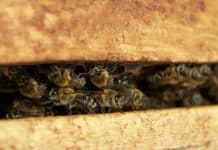Given the changes in our climate, knowledge dissemination in the agricultural sector could lead to a change in agricultural practices with evident shifts in planting seasons. The effectiveness of channels through which scientific knowledge is spread to farmers, determines the value of knowledge products.
Without the means to transfer their knowledge, scientists’ research efforts are in vain. Spreading knowledge therefore is just as significant as its generation. Driven by the changing climate, creating knowledge exchange platforms is a key responsibility of agricultural research institutions such as the Agricultural Research Council (ARC).
The ARC has a well-managed process of conveying knowledge from academic institutions or agricultural research centres, to prospective users. This occurs through an inter- and transdisciplinary approach. Technology transfer through climate-smart technologies, for example, is a multi-stage process by which thoroughly researched weather patterns, trends and their influence on agricultural productivity are transformed into a useful, user-friendly product.
The transfer process involves both the source and recipient of knowledge. The source is the thinker, conceiver, developer or generator. The receiver is the end-user, adopter or implementer – in other words, the farmer. To facilitate knowledge transfer, well-developed, respectful, long-term relationships among stakeholders and participation are critical.
Interdisciplinary agricultural research studies
In its effort to establish effective knowledge-sharing platforms, the ARC engages in interdisciplinary agricultural research studies. These studies include farmer-to-farmer visits that create the platform for knowledge exchange between farmers and scientists. Organised farmer-scientist groups are called science field shops or indigenous knowledge field shops. Established field shops are also referred to as knowledge domains field shops (KDFS) to acknowledge the importance of both knowledge systems, or pools, and knowledge exchange.
Since they understand the vast challenges farmers experience, scientists recognised the need to involve other disciplines such as agronomists, soil scientists, agricultural economists and water management specialists. Mono-disciplinary scientists would have been unable to eradicate the problems farmers face. In contrast, multi-stakeholder and multi-disciplinary collaborations provide a strong base for farmer problem-solving, whether it is related to climate, agronomics or soil.
Equipping farmers to improve resilience
Agrometeorologists can help solve challenges related to climate change, because they understand the challenges associated with this phenomenon. They can help farmers improve their resilience and adaptability. In terms of successful agricultural problem-solving the emphasis is on enforcing interdisciplinary approaches, thereby eliminating escalating uncertainties and agro-ecological complexities within the farmer’s vicinity. Figure 1 demonstrates research, collaboration and methodology with multi-stakeholder, interdisciplinary and transdisciplinary approaches towards an agricultural problem-solving strategy.

In the past decade, agrometeorologists have adopted and applied participatory tools and approaches towards educating and training farmers and intermediaries. This education centres on the application of agrometeorological and agroclimatological concepts to benefit farmers and minimise weather- and climate-related uncertainty. Such initiatives were implemented with regard to an understanding of the challenges, impact, problems and solutions.
Developing an understanding of the policies related to extreme meteorological events that affect farmers, local government and climate change strategies, serves as a guideline to adaptation. It also helps to understand the difficulties faced by different types of farmers (e.g. multi-cropping compared with mono-cropping) as well as those in the same categories. The findings of the interdisciplinary study projected that, in the South African context, challenges remain within the channels of communication, such as the lack of tailor-made agricultural advisories.
A final thought
The ARC undertakes agricultural research that enforces the multi-stakeholder, interdisciplinary and transdisciplinary approaches that are the key to unravelling the complexities farmers face through “training of the trainers”. The establishment of the KDFSs became a solution to multiple problems and a platform for knowledge exchange.
KDFSs served to acknowledge schools of thought and engineered educational commitments and knowledge sharing. This necessitates ongoing transparency, different perspectives and reflexivity between all stakeholders and disciplines involved towards community development, food security and sustainable livelihoods. – Dr Gugulethu Zuma-Netshiukhwi ARC-Soil, Climate and Water
For more information send an email to ZumaNetshiukhwiG@arc.agric.za.





